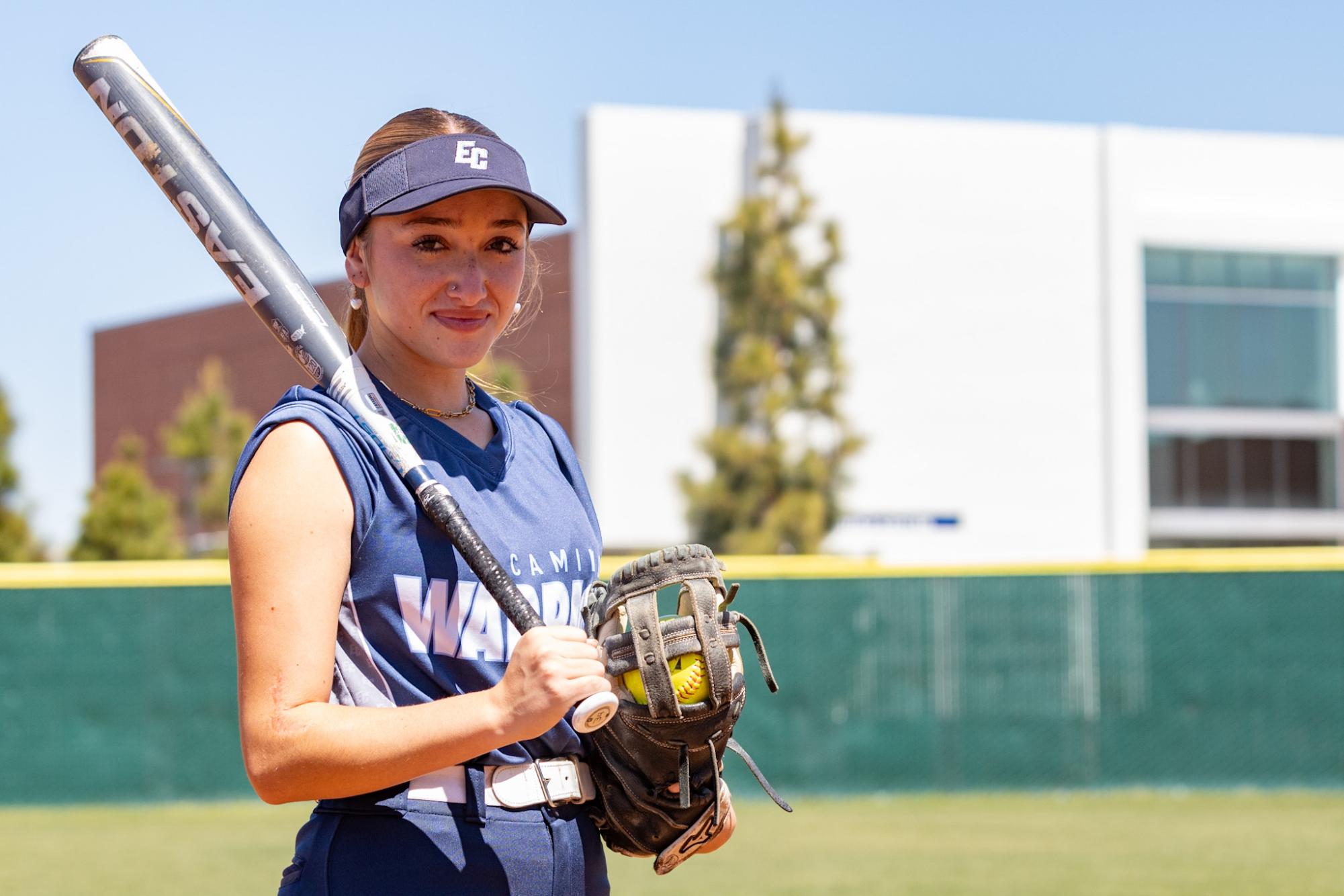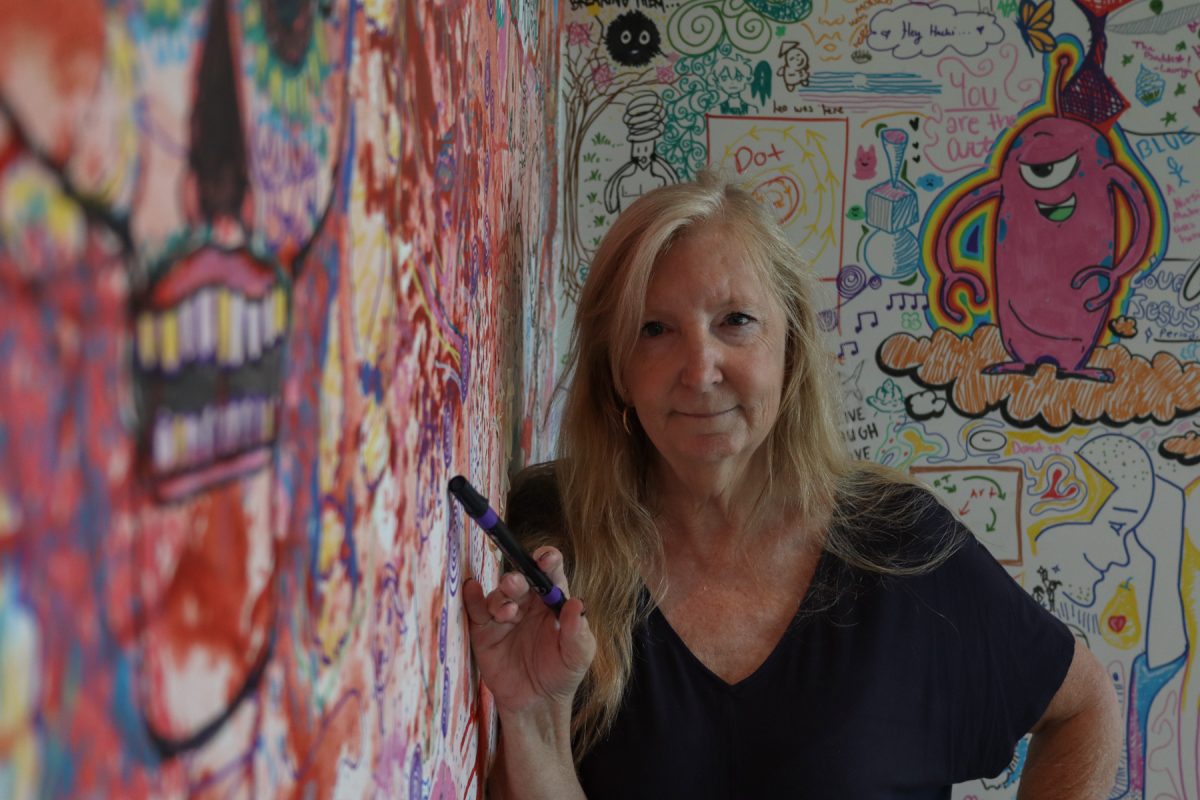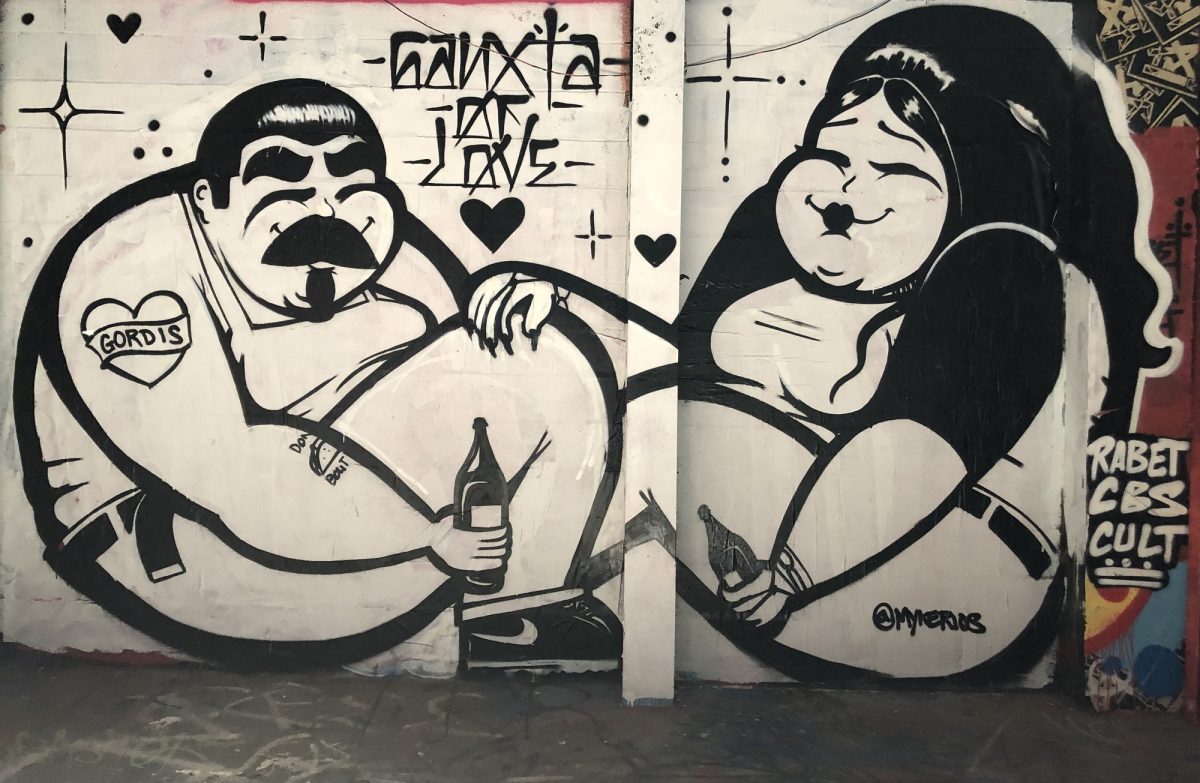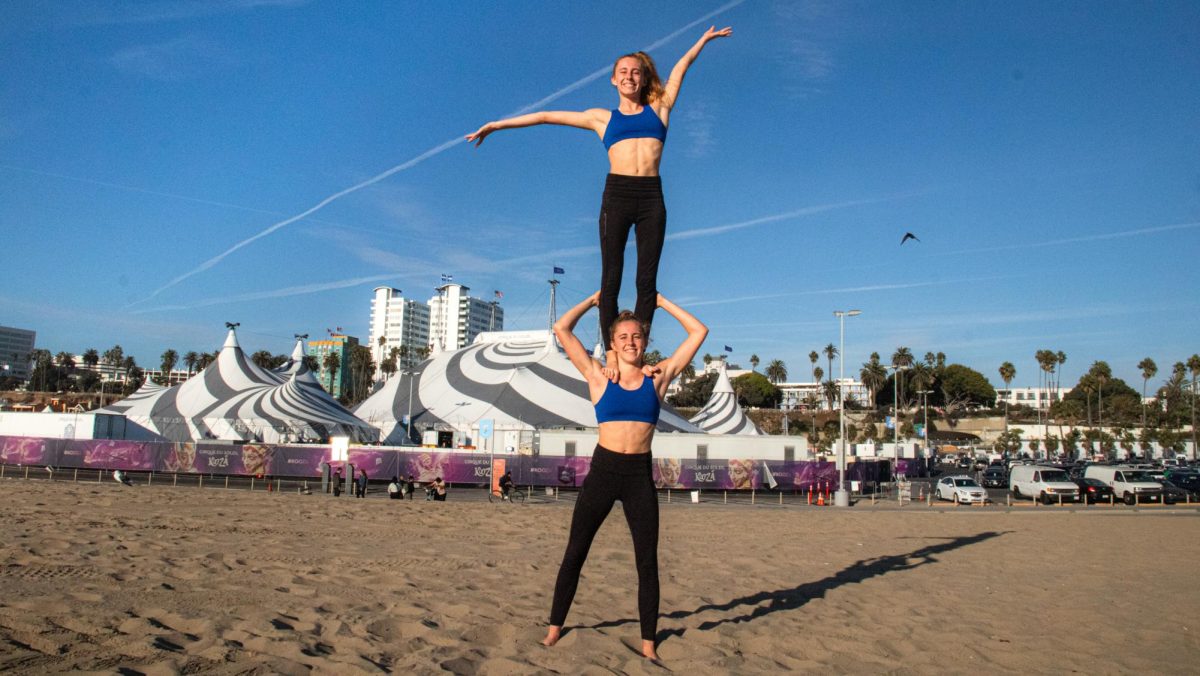Anahi Pintado is eyeing down the pitcher.
It’s early in the Warriors’ game against Chaffey College, and Pintado, a 5-foot, 3-inch freshman catcher, is taking practice swings from the on-deck circle as she awaits her turn at bat.
Soon, it’s her turn to step up to the plate.
Pintado makes her way to the diamond as her name is announced through the loudspeakers at El Camino College’s softball field. Mariachi music plays over another loudspeaker.
With a bat in hand and helmet on her head, she stands at the ready. Her face is focused and determined – looking for the ball that is about to be pitched her way.
As she has done countless times since she was 8 years old, the now 19-year-old psychology major takes a swing at the ball and connects for a hit, her long, brown ponytail flying.
While she is balancing life taking classes at El Camino and playing for the softball team, the Golden Glove Award winner is also balancing life as a softball player for an international team, which is rare for a community college athlete.
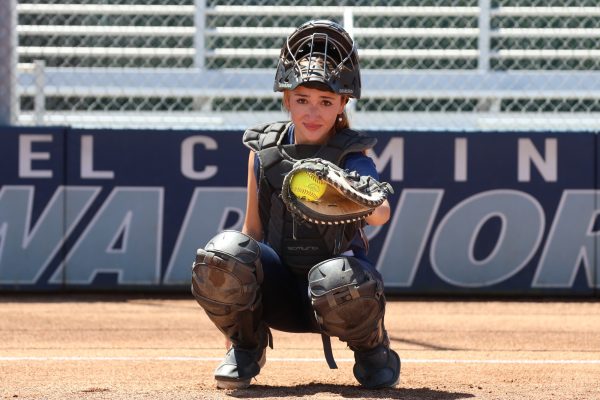
Pintado has also competed as a member of Mexico’s Junior National Softball Team under Jorge Araujo, who is now head coach of the women’s national team and also serves as an associate head coach at California State University Fullerton.
She is eyeing a spot on the 20-player team for the Los Angeles Olympics in 2028.
While she is looking to don the colors of Mexico’s flag on the Olympic stage for softball, Pintado hasn’t forgotten her childhood was rooted in dance.
Born in Inglewood, Pintado started ballet when she was just 2. On the way home from a dance recital, she and her father, Sergio, who is the current head coach for Mexico’s junior national team, drove by a park in Manhattan Beach.
She saw girls wearing pink bows and helmets playing softball. To this day, Pintado wears a bow on her hair during games, taking with her the reminder of where she first started when taking the field.

Pintado, who was 8 at the time, told her father she wanted to play softball.
“Softball was fast paced, it was moving, everybody was cheering, everybody was loud,” Pintado said. “That’s what I loved about it.”
Her father was hesitant to let his daughter play because he did not want to see her experience the kind of tough coaching her older sister had experienced as a softball player. Pintado was adamant though.
Adamant to play.
Her father eventually gave in to her request, telling her if she wanted to compete, hard work would be required.
“It’s been very humbling, because there are a lot of kids in Mexico that really look up to her [Pintado], and they want to model the way she disciplines herself toward the sport and toward school,” Sergio Pintado said.
That hard work, along with grit and perseverance, led to Pintado earning a chance to tryout in West Covina with the Mexican national softball team at age 13, competing for a spot with other athletes ranging from 15 to 20 years old.
In high school, she played under longtime coach Tom Tice for Rosary Academy in Fullerton, playing catcher and the third base position.
The eligibility requirements for the national team includes Mexican citizenship, as well as the ability to speak Spanish. Pintado holds dual citizenship in the U.S. and Mexico, where her father was born and speaks fluent Spanish.
Secondly, a selection committee of five members conduct observations and evaluations of players based on performance at workouts.
The committee selects players they feel are best suited for the national team. Another requirement is that the player has to be of Mexican descent, or of origin.
She eventually earned her spot on the national team after a tryout, becoming the youngest player on the team.
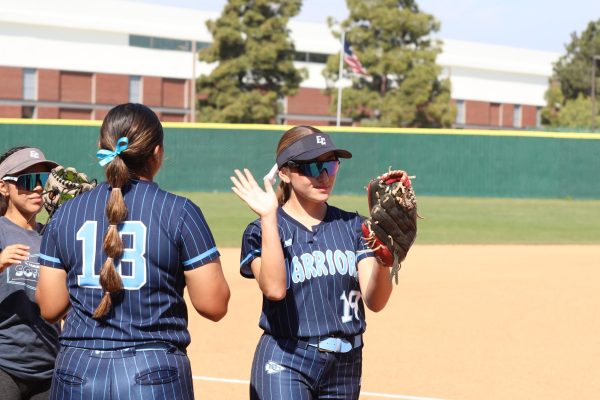
“I wanted to get something more physical than being in a tutu,” Pintado said.
Araujo, who has been coaching with Mexico’s national team for the women’s team and junior team since 2013, discovered Pintado after the young softball player attended a workout, with aspirations to qualify for a national team. While watching her play, the veteran coach quickly took note of her on-the-field abilities, which included good command behind the plate, her work ethic, and her drive.
“She was just really eager to be around the game,” Araujo said in a phone interview with Warrior Life. “She was just like a sponge just wanting to soak everything up from the older players.”
He described Pintado as a coach on the field, highlighting her skillset, on-the-field IQ, as well as her communication and leadership ability.
He recalled a moment when she displayed that leadership during a game in Lima, Peru after an injury to Mexico’s third baseman. Pintado replaced the injured player but felt the batter from the opposing team was about to execute a bunt at the diamond.
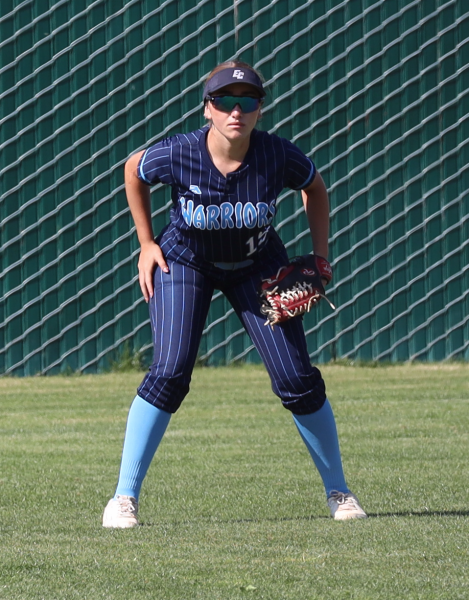
“She comes up to me and she says ‘coach Jorge, there’s 100 percent I’m feeling that this batter is going to bunt,’” Araujo said.
Pintado’s intuition was correct – the batter not only bunt the ball, but it also led to a defensive play.
In addition, he praised Pintado for her work ethic and drive.
“She gets the best out of herself, day in and day out,” Araujo said. “Whether it’s in the classroom, on the field, or as a teammate, she’s always the best that she can be in all those areas.”
The 19-year old freshman competed in several tournaments at the junior national level, which have included PanAmerican tournaments, playing against the U.S., Chinese Taipei, Czech Republic, and Puerto Rico. She has also competed in The World Cup against Puerto Rico, Peru, the U.S., and Colombia.
Additionally, she traveled to Colombia with the U-19 junior national team, taking home a silver medal against the Colombian team. Pintado and her team also placed fifth in Peru.
She was the youngest player on the squad when she traveled to Ecuador with the U-15 team.
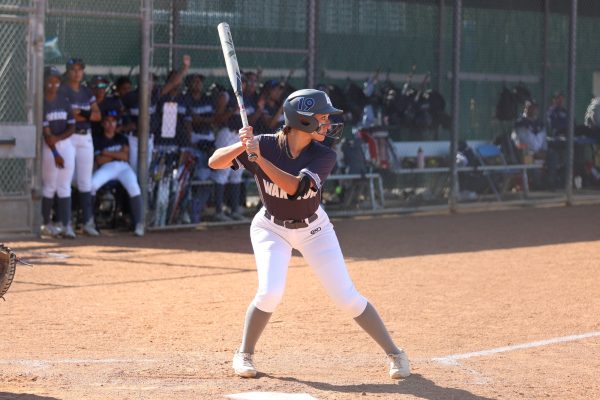
At her position, catchers are generally taller and require a strong arm. As a member of the national team and club softball, Pintado was criticized for her height and arm strength by opposing coaches who believed that she didn’t have the frame or physical abilities to succeed as a catcher, one of the most demanding positions on the field.
Pintado took this as motivation after being angered by the comments and the attitudes, refusing to let her critics define her.
“I’ve had a lot of people say ‘you’re too small to be a catcher,’” Pintado said. “It gave me a reason to prove them wrong.”
Pintado said she brings passion and dedication to her sport.
Catchers require communication with teammates, pitchers, umpires, and coaches, as well as the ability to control the pace of the game, which is a trait she said she brings as a player.
While facing criticism for her size, she also faced criticism for her cultural background.
While playing in Mexico, Pintado said she heard comments from fans, parents and even from people online regarding her light-skinned complexion. The fans said that she was “not Mexican enough” to represent Mexico.
Her father was born in Empalme, Sonora, in Mexico, and grew up in East Los Angeles, while her mother was born in Santa Monica and raised in Inglewood.
“It made me want to prove not only myself but prove them wrong,” Pintado said. “It didn’t matter what I look like, but how I play.”
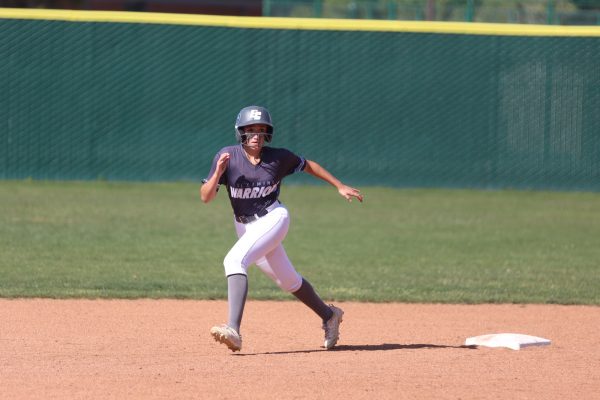
Her mother and brother graduated from El Camino in 2000 and 2018, respectively. Pintado’s aunt also attended the college.
Araujo has been in Pintado’s corner since she was 14 years old and has supported her throughout her journey. So have her softball teammates and coaches at El Camino College.
One of those coaches is Jessica Rapoza, the head coach of the Warriors softball team and a kinesiology professor at ECC.
Before attending the college, Pintado committed to California State University Dominguez Hills but did not play for the university because she said there was a limited roster size. She ended up playing at El Camino because she felt Rapoza gave her opportunities to play softball.
Rapoza also praised Pintado for her on-the-field abilities, which include being versatile at different positions on the field.
“Her work ethic is really good, her skill level is really high, her softball IQ is high, she’s coachable, she has a great spirit, she’s super competitive, she’s gritty,” Rapoza said. “She plays multiple positions, which has been really huge for us this year. Her arm is elite and she’s a good teammate.”
Pintado has been seen playing multiple positions, which have included the left outfield position at ECC during a game against Chaffey on March 20.
Rapoza said it is rare for a community college athlete to play at the junior and national levels. In her 14 seasons as a head coach, Rapoza has had 55 softball players advance to play at the four-year and professional levels.
Thirty-five of those players played at ECC, while 20 came from Santa Ana College, where she was co-head coach before taking over for the Warriors.
“It’s a special situation that we have, and I feel very fortunate to get to coach her [Pintado],” Rapoza said.
Cruz Rolando Guerrero, president of the Mexican Softball Federation since 2016, said it is a regular occurrence for a community college student-athlete to qualify for Mexico’s national team at the junior level.
“It’s common. I started looking for young women with Mexican grandparents or parents who played softball and who were at a high level of softball,” Guerrero said in Spanish during a phone interview with Warrior Life. “Right now, we have about eight players from this side [U.S.] that got a scholarship from high school and now they are there with a coach in Miami to raise their level of play.”
Araujo has also said it is common at the junior level to have softball players competing outside of the national team to be part of a high school team, as well as club teams. The exception would be the players who play in Mexico.
The Mexican Softball Federation is the governing body of tournaments to represent Mexico in softball and is the main softball organizer in the country.
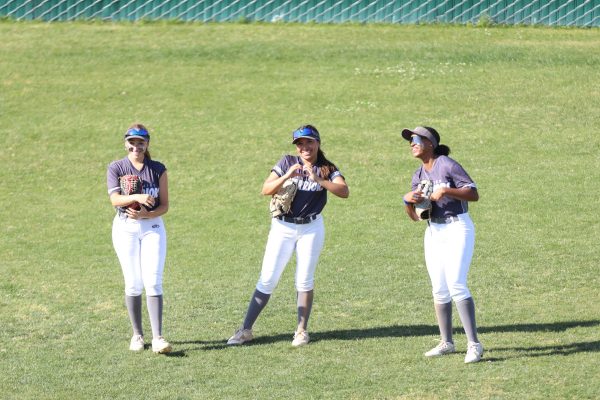
Expansion within the federation has come to fruition, with additions of different age-group categories ranging from age groups under 6 years old to under 14.
Not only have different age-group categories been added to the organization, but the country has also reached several milestones—the creation of its first professional league, the first time qualifying for the Olympics [2019], medaling for the first time in a Central American and Pan-American competition, and competing in its first World Cup.
Guerrero said 15 players from the senior national team in preselection come from different American colleges, which include players in Utah, Arizona, or Washington. He said there are nine players on the youth team who are from Mexico, while another nine of those players were born in the U.S. but have Mexican roots.
Pintado is in a transitional phase.
She can qualify for the women’s Olympic team in 2028, but she would first have to qualify for the team in 2026.
Guerrero added that there are six professional leagues, and is looking to expand to 10 teams. The leagues will start their second season on January 25.
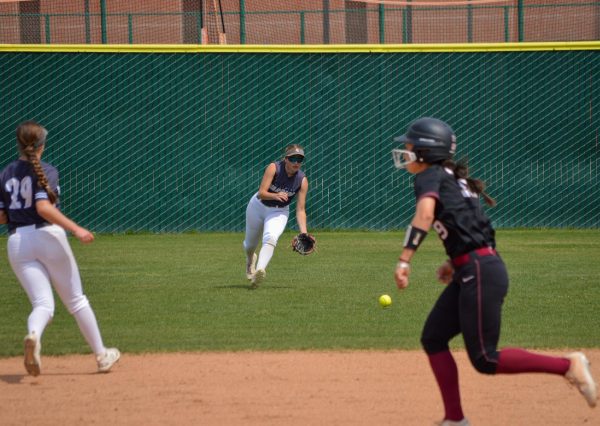
She would have to stay with the junior national team in order to transition to making the women’s team.
Araujo and Rapoza have no doubt that Pintado will continue to work her way in order to qualify for the Olympic team.
“There’s no doubt in my mind that she’s going to go after it and earn a spot on that team,” Araujo said. “I do not see her shying away from the tryout process and competing against other players that are trying to make the team.”
- Delfino Camacho contributed to this story


